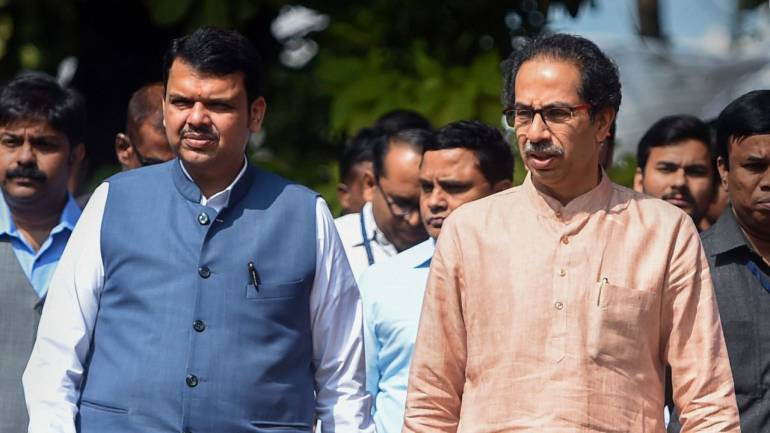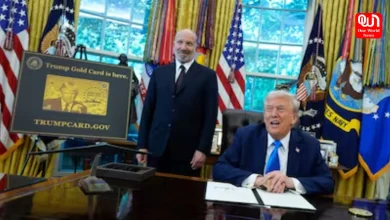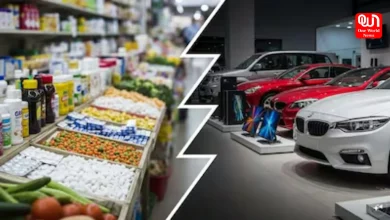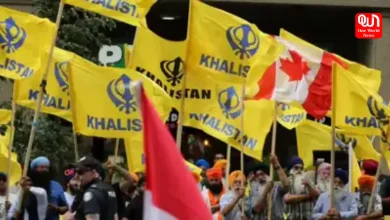Political Analysis: Why Shiv Sena is on backfoot in Maharashtra Election?

Shiv Sena wanted 135 seats but is settling for 124 in the upcoming Maharashtra election
BJP took the official big brother position in its alliance with Shiv Shena on October 1. Shiv Sena was given limited seats (124) while BJP is leading the Maharashtra Vidhan Sabha Election 2019 by keeping 164 seats to themselves. The tables have finally turned ahead of the poll date- 21st October 2019 in 288-member Maharashtra assembly.
Shiv Sena which was founded in 1966 as the right-wing party espousing the cause of native Maharashtrians had no other option than swallowing its pride. Since the start of the alliance in 1989, Sena has always been on driving seat by contesting on more seats than BJP. The first Sena-BJP alliance government was formed in 1995. A Shiv Sainik, Manohar Joshi was the first one to take the oath as Chief Minister from the alliance government.
BJP and Shiv Sena fought separately in 2014 elections
Both the parties parted their way in 2014 and fought election separately. The BJP emerged as the single largest party by swiping 122 seats while Shiv Sena could only manage to win 63. Sena after disappointing results returned to support the BJP alliance.
Conscious of the changed power-shift in the state, party chief Uddhav Thackeray has pushed for 135 seats but he had to settle with 11 seats less. Now, even if the Bhartiya Janta Party spares 18 seats for its four other smaller allies then also they will have 146 seats, 22 more than Shiv Sena.
The dominance of BJP in the alliance has led the Shiv Sena party workers dejected but there haven’t been any protests so far. Sena’s communication wing released the list of 124 constituencies that it is going to contest on October 1. There are various reasons why Uddhav Thackeray agreed to play second fiddle but the top one is that he is grooming his son Aditya Thackeray to take the party over from him.
Uddhav took over the party officially in 2012 after the demise of his father and party founder Balasaheb Thackeray is now banking on his son Aaditya Thackeray to connect with the voters. Present Senior Thackeray hasn’t kept well of late and has been confined to the Thackeray family home- Matoshree in the Bandra suburbs. He hasn’t rallied or toured like in the past despite the election being only 15 days away. The junior Thackeray- Aaditya has toured the state but he still has to prove his mettle. He also became the first member from his family to contest election from the Worli seat in South Mumbai.
Uddhav didn’t want to take the risk of getting isolated in state politics
It is believed that Uddhav didn’t want to take the risk of getting isolated in state politics at such a crucial juncture. Also, for a party which takes pride in Hindutva credentials, aligning with the so-called Congress or Sharad Pawar’s Nationalist Congress Party doesn’t seem feasible. Shiv Sena’s efforts to reconcile with his estranged cousin Raj Thackeray, president of Maharashtra Navnirman Sena (MNS), also went futile. A large number of supporters and legislators of the Shiv Sena is in favour of the tie-up with BJP as they do not want to give up the perks of being in power.
A senior Shiv Sena leader said that Uddhav Thackeray has taken a pragmatic decision which the party missed in 2014. The alliance between two parties broke over the issue of three seats. BJP was willing to give 148 seats to Shiv Sena in 2014 state elections but Shiv Sena insisted for 151 seats.
Read more: PMC Bank Crisis: What went wrong with PMC bank?
A joint press conference in March declared that both parties will share equal seats
After some hectic discussion this year, Shiv Sena knew that BJP is not going to give 135 seats at any cost which some of his colleagues like Sanjay Raut hoped. During the joint press conference of Maharashtra CM Devendra Fadanvis and UddhavThackarey, it was announced that both the parties will share an equal number of seats after fixing a quota for other smaller allies – Rashtriya Samaj Paksha (RSP), Republican Party of India, Rayat Kranti Paksha and Shiv Sangram.
Sanjay Raut believed that both the parties will have 135 seats each and rest 18 will be allocated to other allies. The Maharashtra CM recently said that from the total of 270 seats (18 for smaller allies) BJP has a legitimate claim for 122 sitting seats and Shiv Sena has a claim on 63. Rest of the 85 will be distributed equally.
The final seat-sharing agreement tells us that BJP has sacrificed 18 seats as per the Fadanvis formula of equal sharing. However, BJP has held the fort in the four major urban pockets in the state – Mumbai, Nashik, Pune, Nagpur despite the tremendous pressure from the Shiv Sena. Thackeray wanted equal seats in Mumbai but he has to settle for one less. Shiv Sena got 17 seats from the 36 assembly seats in Mumbai.
BJP had swept all the assembly seats in Nashik, Pune and Nagpur in 2014 thrashing other parties including the Shiv Sena. This year Shiv Sena Chief has asked for at least 1 seat in these cities so that his party could stay relevant. BJP denied the demand outright and Sena continues to stay in the backfoot.







